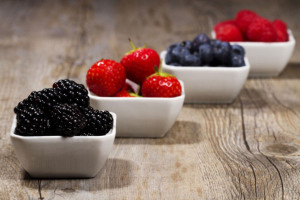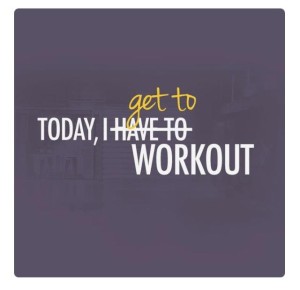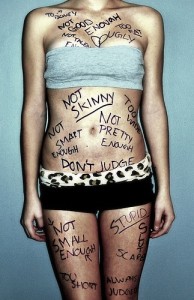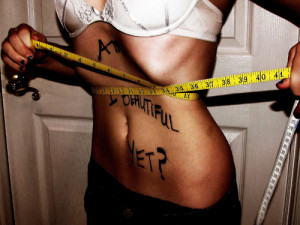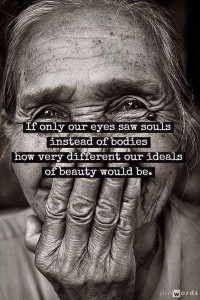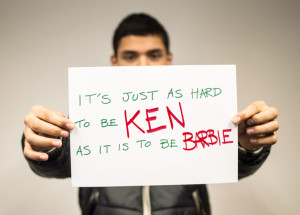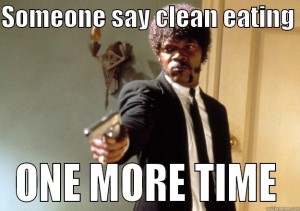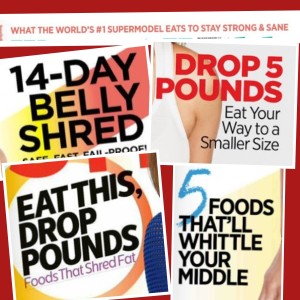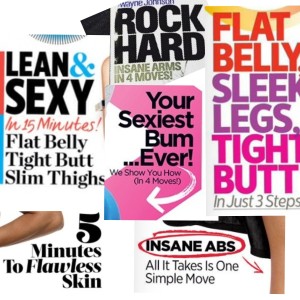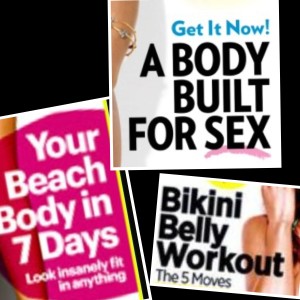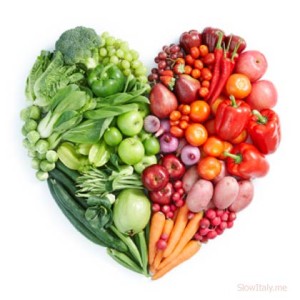Why we eat when we’re not hungry (and what to do about it)
Ever find yourself searching through the pantry for something to munch on when you’re not even hungry?
How about at a party, throwing back food while thinking, “Why am I still eating?!”
Anyone struggle with eating at night? Even after a nice satisfying dinner??
I’m always surprised by how often I catch myself wanting to eat when hunger is nowhere to be found. From my own experience and talking with friends and clients, I don’t think this is an uncommon problem, but it is a problem.
So I’ve come up with this SWEET method, which is a 5 step process to taking control back and learning how to combat emotional eating. I call it the SWEET method 🙂 and here it is….
Stop – set the utensil or food down, walk away from the pantry, whatever it is that you’re doing, stop.
Wait – give yourself a wait time 15 minutes before you eat anything else.
Exhale – just breathe…. and remember that it’s just food and it’s not going anywhere
Examine – why are you eating?
Treat – treat yo self….by treating the real issue
When we are in the moment, whether we are already eating or we’re just feeling the craving, it can be really hard to just stop. So the first 2 steps are really just about taking a moment to slow down and giving yourself some time away so that you can think clearly. What I want to focus on is the last 3 steps.
EXHALE.
Let’s just be honest, it’s really not about the food, right? It’s not. How do I know this? Because 99% of the time, the struggle is with food that is often sub-par and always readily available at the drop of a hat. Yet it’s been placed up on a pedestal so high that we’ve begun to believe the lie that food is so powerful that it has some sort of control over us!
It’s just food.
This is the time to take a deep breath and remind yourself of this truth. Take it to God, lay it down and ask him for help.
EXAMINE.
This is the big question right? WHY AM I EATING? If you want to improve your relationship with food, I think this is an important question that needs to be answered. Then, even if you decide you are going to indulge because it’s a special day and you’d like to enjoy a little cake with everybody else, at least you are making a conscious decision. All too often, I think we’d prefer not to think about it at all. So instead we get stuck in this cycle of mindless eating, then beating ourselves up for it.
Take the time to dig a little deeper and start gaining awareness of why you’re doing what you’re doing. If it’s not about the food, then what’s it about??
Here are some possibilities…
- Relaxation: maybe eating is relaxing or it allows you to take your mind off of all the stresses of the day and therefore, relax
- Comfort: for a short time, food can definitely feel therapeutic and comforting
- Procrastination: anyone else ever find themselves procrastinating by eating? No? Just me then, I guess. 😀
- Boredom: eating is an easy and enjoyable distraction
- Cravings
- Reward: food is often a means of celebration or reward
TREAT the real issue.
When we know the real issue, then we can treat it. Each time we treat the real issue, we feel a whole lot better both mentally and physically and food loses a little bit of power over us.
“The secret to change is to focus your energy, not on fighting the old, but on building the new.” ~ Socrates
Instead of just trying to fight the urge to eat, replace it with something else. Take some time to build a list of solutions that you enjoy. For example:
- Relaxation: bath, nap/bed, walk, journal, read
- Comfort: talk to a friend, pray, meditate
- Procrastination: Just get it done! You know you’ll eventually have to do it, so you may as well just do it now. You know you’ll feel better once you do!
- Boredom: (some of you are like, I wish!! 😉 ) read, puzzle, walk, dog training, insert your hobbies
- Cravings: two of the most common triggers for cravings are stress (too much exercise or deprivation, not getting enough sleep, or not managing stress well) or habit (craving something sweet just because your body is used to it)
- For stress, identify what the cause is then go from there
- For habit, both mint or cocoa are really helpful for easing cravings
- Mint: gum, tea, or brush your teeth
- Cocoa: a few squares of dark chocolate, these protein balls, or hot cocoa (1-2 heaping tablespoons of cocoa powder to hot water or milk, sweeten with stevia or xylitol to taste)
- Reward – this is a big one…it’s all about the mindset
- Prayer: as a believer, I believe this is the #1 way to combat emotional eating. At the heart of emotional eating is turning to food for things that only God can truly help you with friend. Don’t ever overlook this. He is here. He wants to help you.
- Change your perspective: A lot of us feel like we deserve a reward for choosing to exercise or eat healthy because it’s hard, but I’d argue that it’s even harder to be unhealthy. A shift in perspective would be that health is a reward and leads to many other rewards as well.
- Instead of pinning or putting up pictures of hot bodies, find deeper, more meaningful inspiration for being fit and healthy
- Practicing gratitude:
“What does gratitude have to do with finding peace with cookies? A lot!When we think about what we are grateful for, and survey all the luxuries we have, it helps combat the feeling that we are being deprived, or living a life that is lacking in some way because we choose to pass on some treats.
The more we focus on what we don’t have, the more we feel lacking, wanting, craving.As it pertains to this habit, there is certainly room to view it from opposing perspectives. We encourage thinking about it as choosing your favorite treats, savoring them and enjoying the experience. (Not limiting, withholding, or focusing on what you are not eating).
Focus on the abundance you have and not what you lack.” ~Georgie Fear
So there it is: Stop, Wait, Exhale, Examine, Treat the issue….pretty sweet, right? 😀
The fact is that sweets are not going anywhere. We can not just avoid food or cut it out of our lives entirely. Therefore, we must learn how to live with it. Hopefully, we can do ourselves one better and learn how to keep it in it’s proper place & enjoy it in the way God intended.

